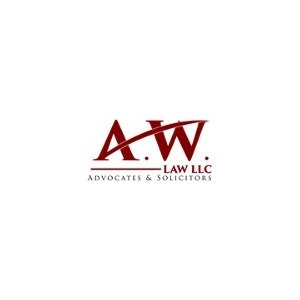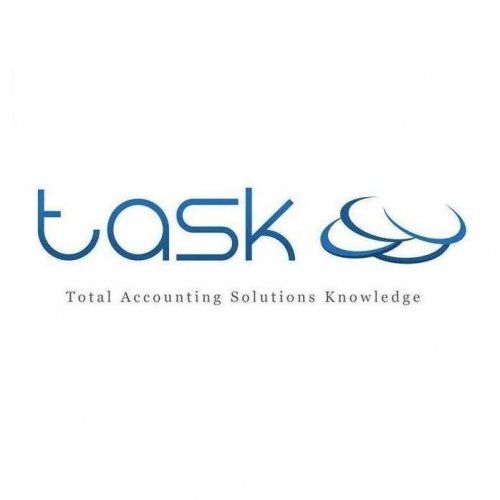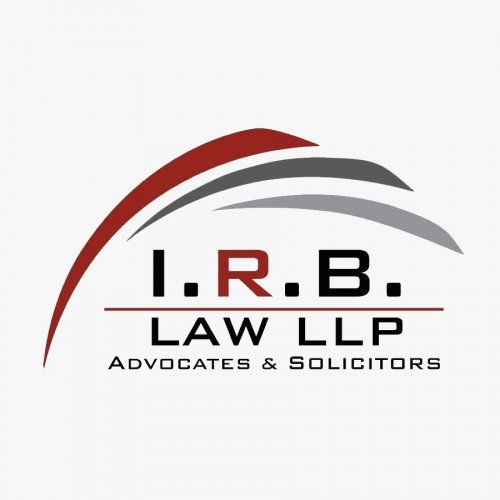Best Sanctions & Export Controls Lawyers in Jurong East
Share your needs with us, get contacted by law firms.
Free. Takes 2 min.
List of the best lawyers in Jurong East, Singapore
About Sanctions & Export Controls Law in Jurong East, Singapore
Sanctions and Export Controls Law in Jurong East, Singapore refers to the legal frameworks that regulate how goods, technology, and services can be exported or imported, especially when such transactions cross international boundaries. These laws are designed to ensure that businesses and individuals do not violate international sanctions, and that sensitive products or technologies do not end up in the hands of sanctioned entities or countries. The rules are especially relevant due to Singapore's status as a trade and logistics hub, with many businesses engaged in global commerce operating from districts like Jurong East.
Why You May Need a Lawyer
Navigating the complex landscape of sanctions and export controls can be daunting, and the consequences of compliance failures can be severe. You may need a lawyer in situations such as:
- Uncertainty about whether your products or services are subject to export restrictions
- Dealing with goods that are classed as dual-use, with both civilian and military applications
- Facing investigations or allegations of exporting to sanctioned countries or entities
- Receiving inquiries or holds from local authorities such as Singapore Customs
- Setting up international operations or partnerships and needing compliance guidance
- Wanting to conduct due diligence on customers, suppliers, or logistics partners
- Needing to implement internal compliance programs for your business
- Responding to legal notices or penalties for potential law violations
- Understanding how international sanctions imposed by the United Nations or other countries may affect your business in Singapore
- Seeking to appeal or negotiate penalties or restrictions imposed by enforcement agencies
Local Laws Overview
Key local laws in Singapore relevant to sanctions and export controls include the Strategic Goods (Control) Act, the United Nations Act, and related subsidiary legislation. These laws cover the following main areas:
- Requirements for exporters and freight forwarders to obtain licenses for controlled goods and technology
- Obligations to perform due diligence on all parties involved in international transactions
- Prohibitions against dealing with entities or countries subject to UN sanctions, as adopted by Singapore
- Obligations to comply with end-use and end-user controls, ensuring goods are not diverted to restricted uses or recipients
- Penalties, including hefty fines and imprisonment, for violations such as illicit exports or providing false information
- Specific licensing requirements for so-called dual-use goods, high-tech items, and military-related products
- Enforcement mechanisms by bodies such as Singapore Customs and the Ministry of Trade and Industry
Frequently Asked Questions
What is considered a controlled good under Singapore law?
A controlled good is any item, including technology and software, listed under the Strategic Goods (Control) Order. This includes a wide range of products from military equipment to certain chemicals or electronic components with possible military applications.
Do local businesses in Jurong East need an export permit for all goods?
No. Export permits are required only for goods listed as controlled under the relevant legislation. However, export permits may also be required for goods to certain destinations or end-users as determined by Singapore authorities.
What are the penalties for violating sanctions or export control laws?
Penalties can be severe and include large fines, imprisonment, forfeiture of goods, and restrictions on future exports. The specific penalty depends on the nature and severity of the violation.
How do I know if my customer or business partner is on a sanctions list?
You must check official sanctions and watchlists published by Singapore authorities, such as Singapore Customs or the Ministry of Trade and Industry, and also consider international lists mandated by the United Nations.
What is a dual-use item?
A dual-use item is a product, technology, or service that has both civilian and military applications. These are subject to additional controls to prevent military use or proliferation of sensitive technology.
Can software or intangible technology transfers be subject to export controls?
Yes. The law applies to both tangible goods and intangible transfers, such as software downloads, encrypted technology, or technical know-how that can be provided electronically.
What should I do if I receive a notice or hold from Singapore Customs?
You should respond promptly and seek legal advice. Do not provide false or incomplete information, and preserve all relevant documentation to support your case.
Are there exemptions for small businesses?
No. All exporters and service providers, regardless of size, must comply with sanctions and export control laws in Singapore.
Can I appeal a penalty or enforcement action?
Yes. There is a process for appeal and review of enforcement actions, but strict timelines apply. Legal counsel can represent your interests during this process.
How often are the sanctions and controls lists updated?
These lists may be updated frequently, sometimes several times a year, in response to international developments or new United Nations resolutions. It is important to regularly check for updates.
Additional Resources
If you need more information or guidance, the following local resources can be helpful:
- Singapore Customs (provides detailed information on export controls, permit applications, and updates on sanctions)
- Ministry of Trade and Industry (handles Strategic Goods Control and compliance resources)
- Ministry of Law Singapore (offers information on legislation and legal services)
- Singapore Law Society (can refer you to qualified lawyers with export controls experience)
- Singapore Business Federation (provides compliance seminars and updates for businesses)
Next Steps
If you believe your business or personal activities may be affected by sanctions or export control laws, take the following steps:
- Identify whether your goods, technology, or services are controlled or restricted under Singapore law
- Check all parties involved in your transactions against published sanctions lists
- Contact Singapore Customs or the Ministry of Trade and Industry for clarification if you are unsure about specific goods or requirements
- Consult with a qualified lawyer who specializes in sanctions or export controls law in Singapore, especially if you have received a legal notice, hold, or request for more information
- Implement internal compliance programs and regular training for your staff if your business routinely deals in international trade
- Keep up to date with legal developments by subscribing to official updates or industry newsletters
Lawzana helps you find the best lawyers and law firms in Jurong East through a curated and pre-screened list of qualified legal professionals. Our platform offers rankings and detailed profiles of attorneys and law firms, allowing you to compare based on practice areas, including Sanctions & Export Controls, experience, and client feedback.
Each profile includes a description of the firm's areas of practice, client reviews, team members and partners, year of establishment, spoken languages, office locations, contact information, social media presence, and any published articles or resources. Most firms on our platform speak English and are experienced in both local and international legal matters.
Get a quote from top-rated law firms in Jurong East, Singapore — quickly, securely, and without unnecessary hassle.
Disclaimer:
The information provided on this page is for general informational purposes only and does not constitute legal advice. While we strive to ensure the accuracy and relevance of the content, legal information may change over time, and interpretations of the law can vary. You should always consult with a qualified legal professional for advice specific to your situation.
We disclaim all liability for actions taken or not taken based on the content of this page. If you believe any information is incorrect or outdated, please contact us, and we will review and update it where appropriate.










